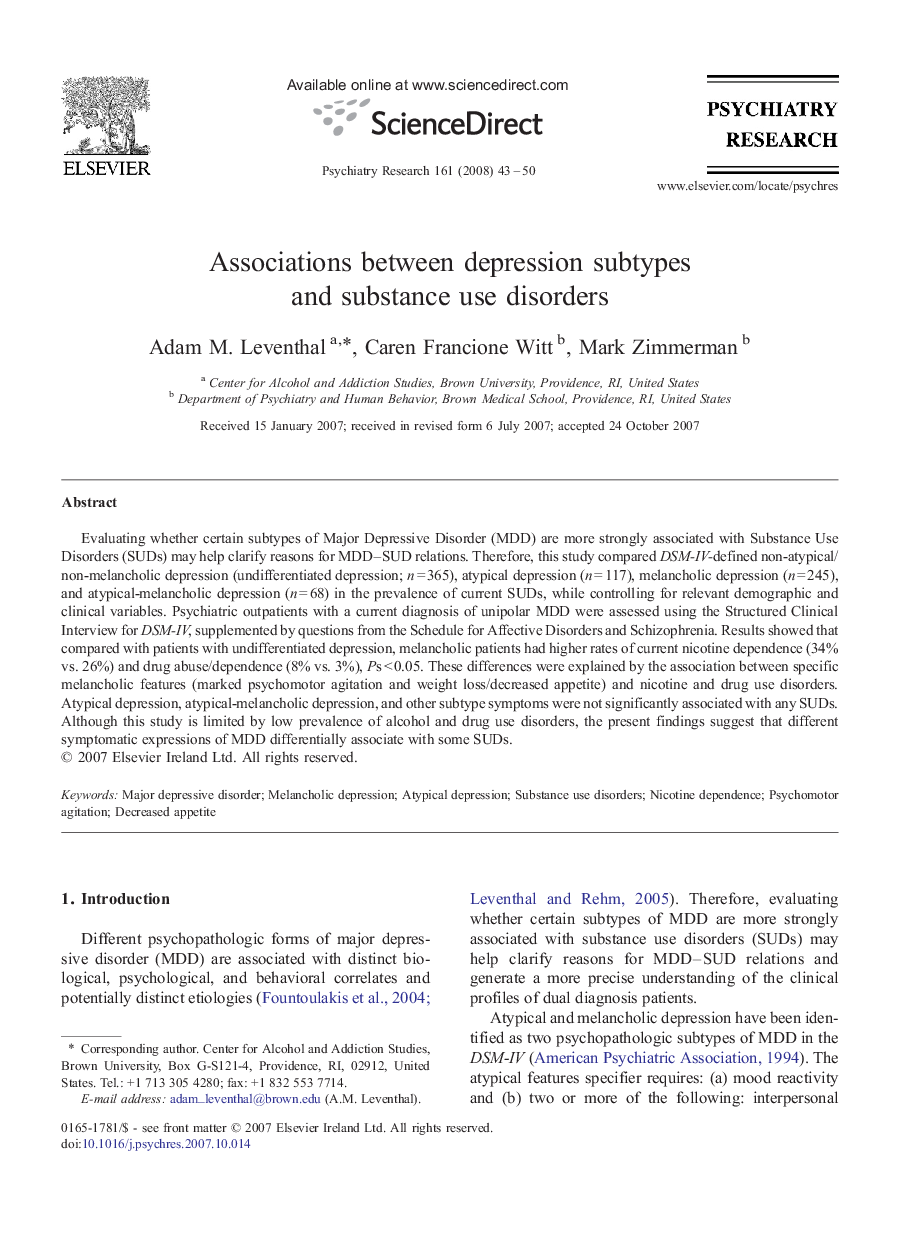| Article ID | Journal | Published Year | Pages | File Type |
|---|---|---|---|---|
| 10304354 | Psychiatry Research | 2008 | 8 Pages |
Abstract
Evaluating whether certain subtypes of Major Depressive Disorder (MDD) are more strongly associated with Substance Use Disorders (SUDs) may help clarify reasons for MDD-SUD relations. Therefore, this study compared DSM-IV-defined non-atypical/non-melancholic depression (undifferentiated depression; n = 365), atypical depression (n = 117), melancholic depression (n = 245), and atypical-melancholic depression (n = 68) in the prevalence of current SUDs, while controlling for relevant demographic and clinical variables. Psychiatric outpatients with a current diagnosis of unipolar MDD were assessed using the Structured Clinical Interview for DSM-IV, supplemented by questions from the Schedule for Affective Disorders and Schizophrenia. Results showed that compared with patients with undifferentiated depression, melancholic patients had higher rates of current nicotine dependence (34% vs. 26%) and drug abuse/dependence (8% vs. 3%), Ps < 0.05. These differences were explained by the association between specific melancholic features (marked psychomotor agitation and weight loss/decreased appetite) and nicotine and drug use disorders. Atypical depression, atypical-melancholic depression, and other subtype symptoms were not significantly associated with any SUDs. Although this study is limited by low prevalence of alcohol and drug use disorders, the present findings suggest that different symptomatic expressions of MDD differentially associate with some SUDs.
Keywords
Related Topics
Life Sciences
Neuroscience
Biological Psychiatry
Authors
Adam M. Leventhal, Caren Francione Witt, Mark Zimmerman,
